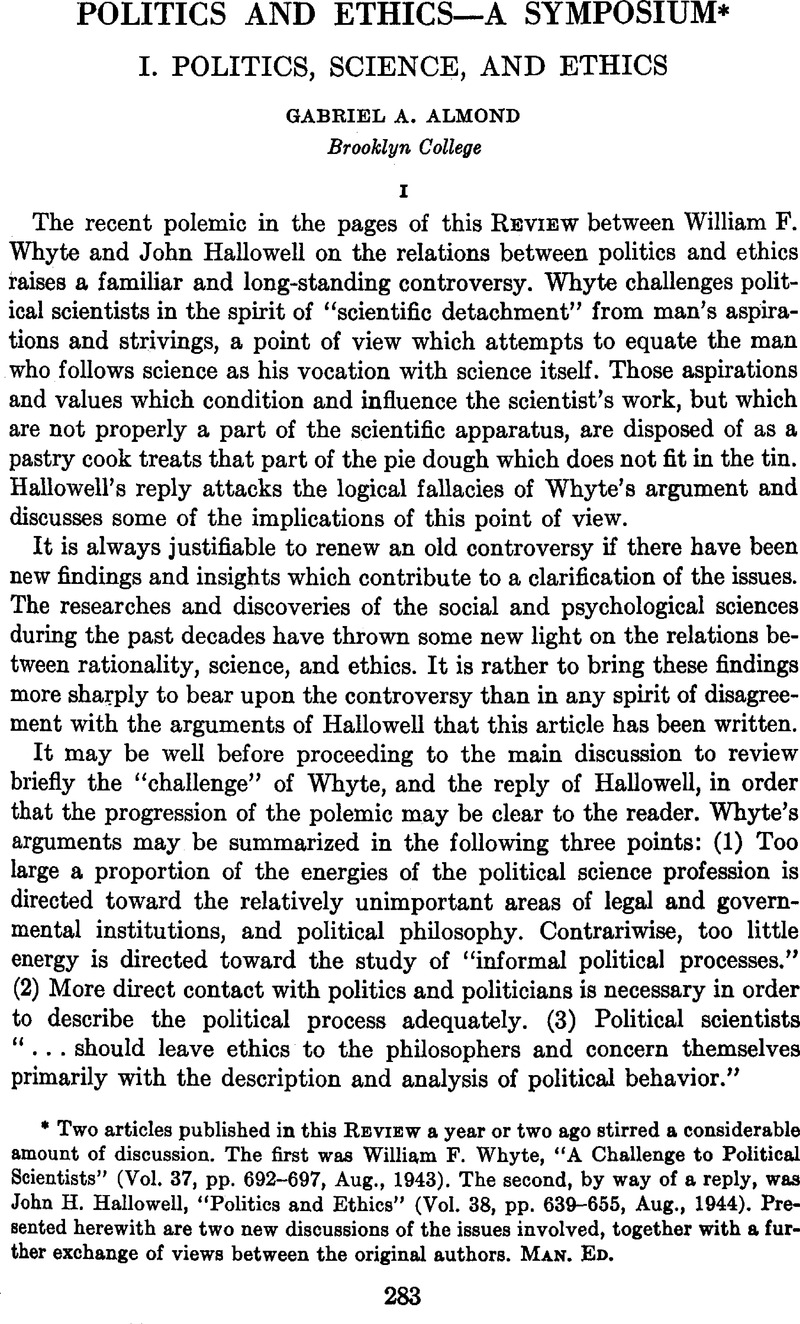No CrossRef data available.
Article contents
IV. Politics and Ethics: A Rejoinder to William F. Whyte
Published online by Cambridge University Press: 02 September 2013
Abstract

- Type
- Politics and Ethics—A Symposium
- Information
- Copyright
- Copyright © American Political Science Association 1946
References
1 Detailed arguments in support of this position were presented in my original article on “Politics and Ethics,” in this Review, Aug., 1944, pp. 639–655.
2 See Whitehead, A. N., Science and the Modern World (1925)Google Scholar, especially Chap. 1. In part, Whitehead says (p. 27): “Faith in reason is the trust that the ultimate nature of things lies together in a harmony which excludes mere arbitrariness. It is the faith that at the base of things we shall not find mere arbitrary mystery. The faith in the order of nature which has made possible the growth of science is a particular example of a deeper faith. This faith cannot be justified by any inductive generalization.”
3 Man lives, thinks, and acts in society. It violates common sense and is unrealistic to separate any one of these functions from the others. Only an intellectual contortionist could conceive of a man who thinks but does not live or act in society. An individual is not a part-time scientist, a part-time citizen, and a part-time man, but all of these things at one and the same time—in short, always a human being.
4 As a matter of fact, although Professor Whyte seems unaware of it, the number of political scientists who have participated in political campaigns both as candidates and as observers is high. One political scientist became President of the United States. During the war years the number of political scientists called upon by the government for national service in positions of responsibility was particularly large, as any casual glance at the News and Notes section of this Review will testify. Perhaps it is true that they have not studied political conditions in the slums as much as Professor Whyte would like them to do, but in view of the responsible positions they have held they can hardly be accused of avoiding either participation in politics or the observation of political institutions. Political scientists have not only had access to the data required for studying “high level organizations,” but many of them have themselves actually contributed to such “data.”



Comments
No Comments have been published for this article.